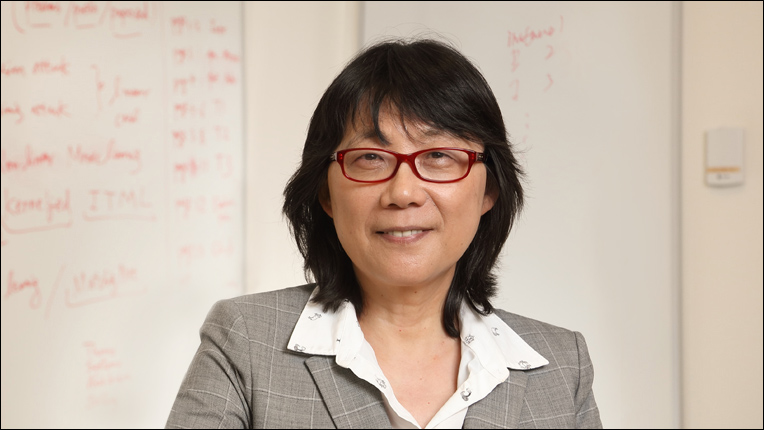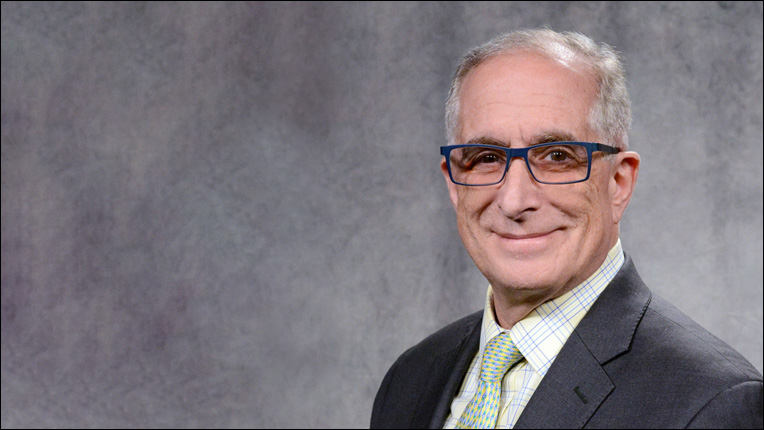Selfless Service and Outstanding Contributions Recognized by World’s Largest Computing Society
Dedicated Individuals “Advance Computing as a Science and a Profession”
ACM has recognized seven individuals with awards for their exemplary service to the computing field. Selected from ACM’s global membership, the award recipients were chosen by their peers for initiatives which have exemplified ACM’s mission of “Advancing Computing as a Science and Profession.” The varied contributions of this year’s ACM service award recipients included making computing education more equitable, leading volunteer efforts in the bioinformatics community, leading ACM’s Publications program, modernizing data collection at the US Census Bureau, strengthening the computing community in India, and volunteer leadership with ACM’s special interest group for data management.
The 2022 Award Recipients include:
- Karlstrom Award
- Distinguished Service Award
- Outstanding Contribution to ACM Award
- ACM Policy Award
- ACM Presidential Award
Karl V. Karlstrom Outstanding Educator Award
Alicia Nicki Washington, Professor, Duke University and Shaundra Daily, Professor, Duke University receive the Karl V. Karlstrom Outstanding Educator Award for their work towards changing the national computing education system to be more equitable and to combat unjust impacts of computing on society. Washington and Daily have had a critical, wide-reaching impact on educating the broader community through a novel course, a popular training program, and a national alliance.
Washington is credited with developing a Race, Gender, Class, & Computing course — a first-of-its kind course aimed at computer science majors that grounds the discipline of computing in history, sociology, and critical race and gender studies. A primary goal of the course is to ensure that students develop a deep understanding of the roots of the inequities in computing, as well as computing's impact on different groups. Washington continues to teach this course at Duke University.
Building on interest in the course material, Washington joined with Shaundra Daily and graduate student Cecilé Sadler in 2020 to launch the Cultural Competence in Computing (3C) Fellows program — a program in which faculty, staff, postdoctoral researchers, and PhD students from across North America, Africa, Europe, and Australia learn about identity, different forms of oppression, intersectionality, and how they manifest in academic computing environments and technologies.
In 2021, Washington and Daily grew the 3C Fellows program into the Alliance for Identity Inclusive Education in Computing (AiiCE), supported by a $10 million National Science Foundation INCLUDES grant. In just two years, AiiCE has impacted 1,184 K-16 educators, 9,387 undergraduate students and 104,784 K-12 students.
The Karl V. Karlstrom Outstanding Educator Award is presented annually to an outstanding educator who is appointed to a recognized educational baccalaureate institution. The recipient is recognized for advancing new teaching methodologies; effecting new curriculum development or expansion in Computer Science and Engineering; or making a significant contribution to the educational mission of ACM. Those with 10 years or less teaching experience are given special consideration. A prize of $10,000 is supplied by Pearson Education.
ACM Distinguished Service Award
Aidong Zhang, Thomas M. Linville Professor, University of Virginia, receives the ACM Distinguished Service Award for her impactful leadership and lasting service to the broad communities of bioinformatics, computational biology, and data mining.
As an ACM member for 29 years, Zhang has devoted tremendous efforts to serving her research community. In 2011, she founded the ACM Special Interest Group on Bioinformatics (ACM SIGBio) and has served in roles as Chair and advisor until 2021. During her tenure, she started SIGBio’s flagship annual conference ACMBCB and served as Steering Committee Chair of the conference until 2019. Under her leadership, SIGBio also developed featured programs such as Women in Bioinformatics, a PhD Student Forum, and a Health Informatics Symposium to foster diversity, equity, and inclusion. She also served as Steering Committee Member and Chair for ACM/IEEE Transactions on Computational Biology and Bioinformatics (TCBB) from 2012-2016, and as Editor-in-Chief from 2017-2021.
In addition to SIGBio, Zhang served on the SIGMOD Executive Committee, was the EiC of ACM SIGMOD-DiSC, Associate Editor for ACM SIGMOD-DiSC, Associate Editor for ACM/Springer Multimedia Systems Journal, Technical Program Committee Co-Chair and Treasurer of ACM Multimedia, Co-chair of ACM SIGMOD Undergraduate Scholarship Program Committee, and General Co-Chair of SIGKDD 2022.
Beyond ACM, Zhang’s numerous contributions to the field have included being selected by the National Science Foundation (NSF) to be a Program Director managing federal investments in several computing-related areas from 2015-2018.
The ACM Distinguished Service Award is presented on the basis of value and degree of services to the computing community. The contribution should not be limited to service to the Association but should include activities in other computer organizations and should emphasize contributions to the computing community at large.
Outstanding Contribution to ACM Award
Jack W. Davidson, Professor, University of Virginia, receives the Outstanding Contribution to ACM Award for leadership in and contributions to ACM’s Publications Program.
Davidson served as Co-Chair of the ACM Publications Board from 2010 through 2021 and has been the founding chair of the ACM Digital Library Board since 2021. In those roles, he has led several key efforts of paramount importance to ACM, its membership, and the computing community. For example, Davidson led the effort to revitalize and enhance the ACM Digital Library, including chairing ACM’s new DL Board and building a team of volunteers who are advancing the platform’s infrastructure, data services, and interfaces.
Davidson also helped guide ACM through the difficult process of moving from a subscription-based free-to-publish model towards full open access, which ACM is on track to complete within the next few years.
Concurrent with these efforts, Davidson challenged the ACM’s Publications Board to address some of the longstanding issues in academic publishing. For example, as publication ethics cases expanded from plagiarism to more extensive cases of compromised reviewing, broken confidentiality and bullying, Davidson steered the Publications Board through challenging investigations and related policy changes. Among the efforts to adopt more inclusive publications policies during Davidson’s tenure, ACM instituted a new author name change policy, which applies to transgender authors as well as authors who change their names for reasons of religion or marriage.
Davidson is also credited with expanding ACM’s publications portfolio with the addition of interdisciplinary journals, a new line of Research and Practice Journals, as well as the new Proceedings of the ACM series. To advance replication and replicability, he also built on earlier efforts to establish standards and badging for the evaluation of artifacts and effects.
The Outstanding Contribution to ACM Award recognizes outstanding service contributions to the Association. Candidates are selected based on the value and degree of service overall and may be given to up to three individuals each year.
John M. Abowd, Professor Emeritus, Cornell University, and Chief Scientist, United States Census Bureau (retired), receives the ACM Policy Award for transformative work in modernizing the US Census Bureau’s processing and dissemination of census and survey data, which serves as a model for privacy-aware management of government collected data. Abowd’s work has transformed the government’s capacity to improve the accuracy and availability of vital statistical and data resources, while at the same time, enhancing citizens’ privacy.
The decennial census data produced by the US Census Bureau, the population count of residents, is the foundation for political apportionment, redistricting, federal funding, and a range of evidence-based policy decisions. While serving as a Distinguished Senior Research Fellow at the Census Bureau, Abowd recognized that differential privacy, a specific mathematical framework used to provide statistical information about a group while protecting the confidentiality of individuals, would allow the Census to unlock crucial economics data sets that could not be previously published due to privacy requirements.
Working with students and civil servants, he helped create OnTheMap, which enabled external researchers to work with differentially private data from the Longitudinal Employer-Household Dynamics Program. With these frameworks, government agencies have been able to link and share new data sources. For example, while he was Chief Scientist, a team in his directorate worked with the US Army to link service data to post-discharge employment data. This initiative—the Veteran Employment Outcomes data project—helps policymakers, military leaders, researchers, and the public examine the relationship between military service and professional outcomes.
Following up on this work, Abowd led the development of a disclosure avoidance system (DAS) at the Census Bureau, which succeeded in providing detailed public data that was computed from the confidential census responses, processed through a differentially private publication system, and released in recognizable tabular format to millions of diverse users. Beyond his effective use of differential privacy at the Census, Abowd has contributed to other areas. Modelling work he supervised helped anchor the bureau’s administrative data collection efforts during the 2020 Census, and he worked with other methodologists at the Census Bureau to rapidly develop methods to help the census address missing data issues caused by the COVID-19 pandemic.
The ACM Policy Award was established in 2014 to recognize an individual or small group that had a significant positive impact on the formation or execution of public policy affecting computing or the computing community. The award is accompanied by a $10,000 prize.
Anand Deshpande, Managing Director, Persistent Systems, and M. Tamer Özsu, Professor, University of Waterloo, receive the ACM Presidential Award for his long-standing contributions to the broader computing community and to ACM.
Deshpande has been a major asset of the computing ecosystem of India, having a tangible, technological, economic, and intellectual impact in his country. He has made significant contributions to the local innovation and educational environments, through think tanks and professional support foundations, but has also contributed to technology policy issues, advising the Indian government on critical topics. His efforts are not confined to computing technology alone, however, but have expanded to addressing medical diseases and other pressing societal challenges.
He has been a cornerstone of the ACM India Council, being instrumental in its establishment, serving as its inaugural co-chair and then past president, hosting the Council’s office and its staff in his company’s premises through the years, and offering constant support to the Council’s activities and, in general, to all ACM members in India, whose community has continued to grow and thrive.
In addition to his seminal research work on large-scale distributed data management and his emphasis on system building targeting grand societal challenges, Özsu has truly dedicated himself to the education of the younger generation, far beyond his own students. The books he has co-authored, the encyclopedias he has co-edited, and the series he has curated have all been definitive resources of fundamental and application-oriented data science knowledge, nurturing and inspiring young researchers and practitioners for decades.
Özsu has also been a very impactful ACM volunteer leader, both at the level of his home SIG (SIGMOD) and at the horizontal level of the entire ACM. His service to the ACM Publications Board, especially his introduction of the novel ACM Books series, has left its mark on the overall strategy and portfolio of ACM publications.
The ACM Presidential Award is given at the discretion of the ACM President to individuals whose contributions in computing fall within the goals of the ACM.
Karlstrom Educator Award Goes to Alicia Nicki Washington and Shaundra Daily
Alicia Nicki Washington, Professor, Duke University and Shaundra Daily, Professor, Duke University receive the Karl V. Karlstrom Outstanding Educator Award for their work towards changing the national computing education system to be more equitable and to combat unjust impacts of computing on society. Washington and Daily have had a critical, wide-reaching impact on educating the broader community through a novel course, a popular training program, and a national alliance.

ACM Honors Aidong Zhang with Distinguished Service Award
Aidong Zhang, Thomas M. Linville Professor, University of Virginia, receives the ACM Distinguished Service Award for her impactful leadership and lasting service to the broad communities of bioinformatics, computational biology, and data mining. As an ACM member for 29 years, Zhang has devoted tremendous efforts to serving her research community. Beyond ACM, Zhang’s numerous contributions to the field have included being selected by the National Science Foundation (NSF) to be a Program Director managing federal investments in several computing-related areas from 2015-2018.

ACM Recognizes Jack W. Davidson for Outstanding Contributions
Jack W. Davidson, Professor, University of Virginia, receives the Outstanding Contribution to ACM Award for leadership in and contributions to ACM’s Publications Program. Davidson served as Co-Chair of the ACM Publications Board from 2010 through 2021 and has been the founding chair of the ACM Digital Library Board since 2021. In those roles, he has led several key efforts of paramount importance to ACM, its membership, and the computing community.

ACM Honors John M. Abowd with Policy Award
John M. Abowd, Professor Emeritus, Cornell University, and Chief Scientist, United States Census Bureau (retired), receives the ACM Policy Award for transformative work in modernizing the US Census Bureau’s processing and dissemination of census and survey data, which serves as a model for privacy-aware management of government collected data. Abowd’s work has transformed the government’s capacity to improve the accuracy and availability of vital statistical and data resources, while at the same time, enhancing citizens’ privacy.

ACM President Honors Anand Deshpande With 2023 Presidential Award
ACM President Yannis Ioannidis has recognized Anand Deshpande, Managing Director, Persistent Systems, with the ACM Presidential Award for long-standing contributions to the broader computing community and to ACM. Deshpande has been a major asset of the computing ecosystem of India, having a tangible, technological, economic, and intellectual impact in his country. He has made significant contributions to the local innovation and educational environments through think tanks and professional support foundations, but has also contributed to technology policy issues, advising the Indian government on critical topics.

ACM President Honors M. Tamer Özsu With 2023 Presidential Award
ACM President Yannis Ioannidis has recognized M. Tamer Özsu, Professor, University of Waterloo with the ACM Presidential Award for long-standing contributions to the broader computing community and to ACM. Özsu is known for his research work on large-scale distributed data management and his emphasis on system building targeting grand societal challenges. In addition, Özsu has truly dedicated himself to the education of the younger generation, nurturing and inspiring young researchers and practitioners.
